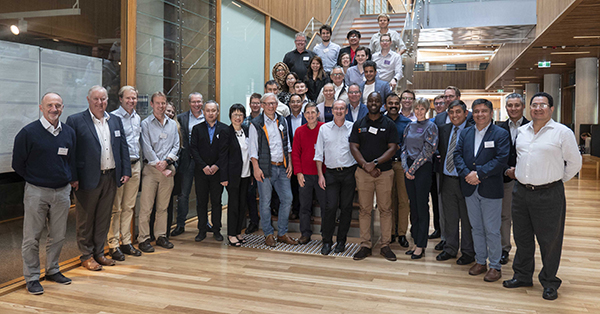Melting and recovering metals from scrapped electronic devices is just one of the solutions for the sustainable supply of critical materials being investigated by UQ researchers.
UQ’s Pyrometallurgy Innovation Centre (PYROSEARCH) Director, Professor Eugene Jak, said the metals were needed for a new generation of electrical devices, including solar panels, computers, smartphones, batteries and fuel cells for electric cars and more.
“Part of the answer to ensuring a consistent supply lies in our existing electronic and other obsolete devices and how we dispose of them when they reach the end of their lifecycle,” Professor Jak said.
“A smartphone alone can hold up to 20 different metals, which could be re-used in other technologies.
“By melting down these devices in high temperature processes, the critical metals can be retrieved and separated back into their original forms to be used again.”
Associate Director of PYROSEARCH Professor Peter Hayes said the team had been working with industry for over two decades helping to develop technologies for the circular economy.

“PYROSEARCH is becoming an internationally recognised centre of expertise in the high-temperature processing and refining of metals,” said Professor Hayes, a veteran pyrometallurgy researcher with around 50 years’ experience in the field.
“We’re working to establish advanced chemical databases, which will allow researchers to predict complex reactions, and refine high-temperature copper and lead processing technologies used to recycle these critical metals.
“This will ultimately lead to improvements in the production and recovery of key metal elements, enabling improvements in recycling and energy savings."
Professor Jak said the team was also focusing its attention on changing metals demand, such as copper, cobalt and nickel, which are essential for e-mobility, incorporating electric vehicles and batteries.
“Our research will enable industry to adapt to the changes in chemistry demands, modify existing and develop new technologies, increase efficiencies, improve recovery levels, reduce energy consumption and improve environmental impact,” he said.
The projects are funded by a major Australian Research Council linkage grants and supported by a number of industry partners from around the world, including Umicore, a global materials technology and recycling group renowned for its sustainability practices.
UQ researchers recently met with leading metallurgical, recycling and advanced materials companies to discuss research collaborations.
“This is a new era for metallurgy; it’s a very exciting time to be working in this field,” said Professor Jak.
Media: EAIT Communications, comms@eait.uq.edu.au.



